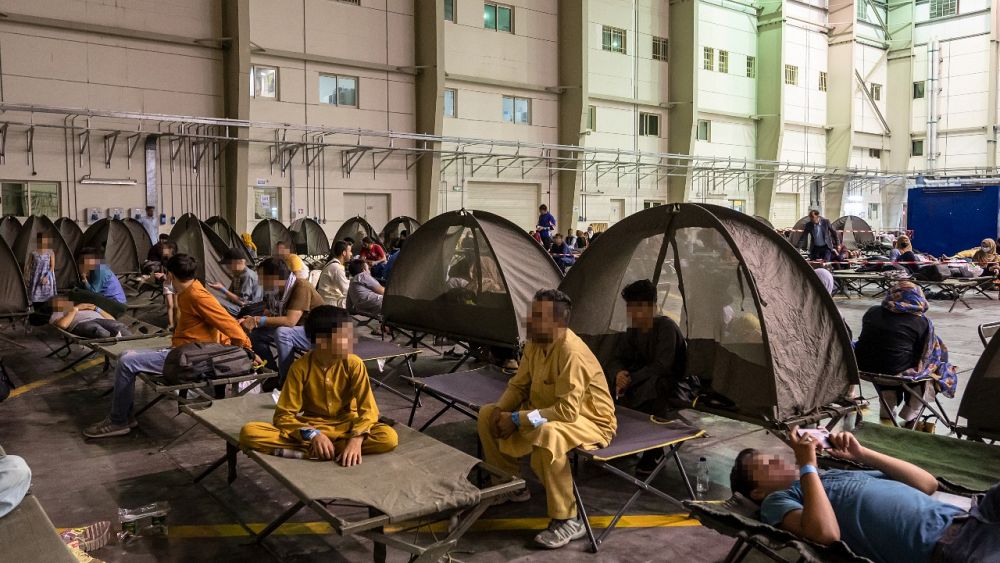
French Prime Minister Jean Castex paid a visit on Tuesday morning to meet Afghan refugees, torn between the relief of having been able to flee Kabul after its swift capture by the Taliban but also deeply worried about the fate of their families and friends.
The hotel in a Paris suburb has taken in hundreds of men, women and children, all evacuated from the Afghan capital since it fell to the Taliban on August 15.
A young Afghan journalist, who arrived in France on Sunday after having “left everything”, burst into tears: “I don’t know if I will ever see my flag again”, she told the prime minister, who was accompanied by citizenship minister Marlène Schiappa.
A doctor described in French the “disasters” he and his family had experienced during two days of chaos at Kabul airport, before they were evacuated by French soldiers.
“We are very worried for our family. I was happy to come to France but I have slightly mixed feelings,” he added.
Another evacuee, still in shock at “the sudden fall of Kabul that we never imagined”, appealed to the prime minister to do more. “The Taliban will go and hunt our families, especially those who have a strong link with Western countries.”
“We will take responsibility,” Castex said. “France must protect those who, in one way or another, have helped the French Republic. And France is also a land of asylum and owes protection to those who are particularly vulnerable,” he added.
Earlier the prime minister visited the crisis unit set up at the foreign affairs ministry (CDSC), in charge of repatriations and evacuations in Paris.
In a large room, a map of Kabul is displayed on the wall, highlighting the embassy and the airport. About 30 agents are working day and night to deal with tens of thousands of emails and calls that have been pouring in for 10 days.
“Our priority is to identify the remaining French nationals in Kabul. We managed to remove a number of them last night after a somewhat complicated operation,” said a CDSC agent. Another official told the prime minister they had come across French citizens who had not come forward to the embassy for repatriation.
So far, of 208 French people identified, 116 have been evacuated, 30 are in progress and 62 are still pending.
Three doctors have also been mobilised, in particular to manage the delivery of medical equipment to Abu Dhabi where the evacuees first land. One doctor reports there are cases of dysentery, of “acute dehydration” among people who had waited at the airport. “Our smallest patient is seven days old, he still has his umbilical cord.”
The CDSC agents anticipate a painful few days ahead, with the end of evacuation operations in sight, which in France’s case could happen as early as Thursday evening.
“We are going to have a peak of anxiety. Ninety to 95% of calls are Afghan refugees in France who are worried about their families,” said a cell leader.
Another ministry official says there will still be work to do after the operation, referring to the threatened and the vulnerable who “were not able to be evacuated”.
“We will have to continue to imagine a plan so that we can deal with the demands,” he says.